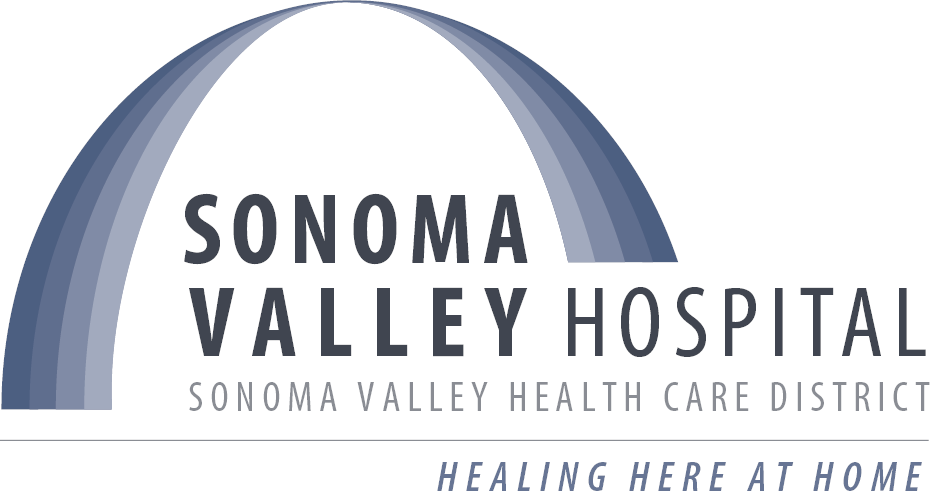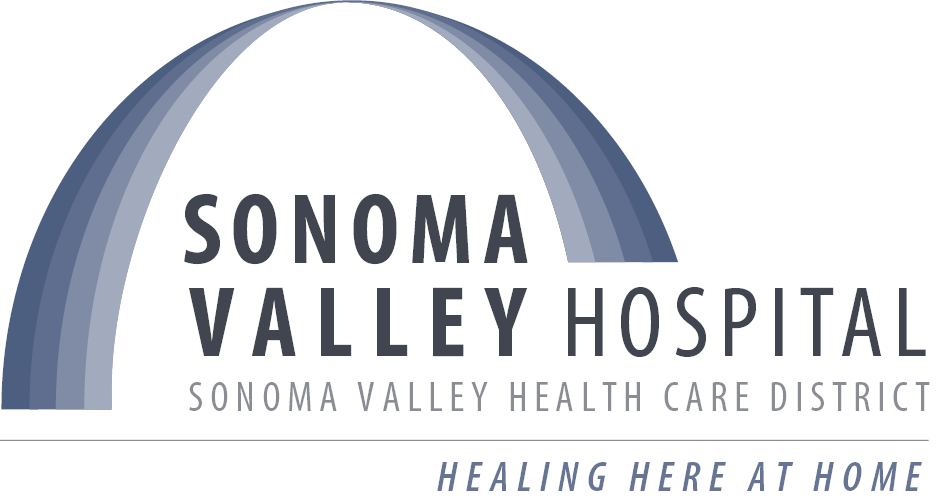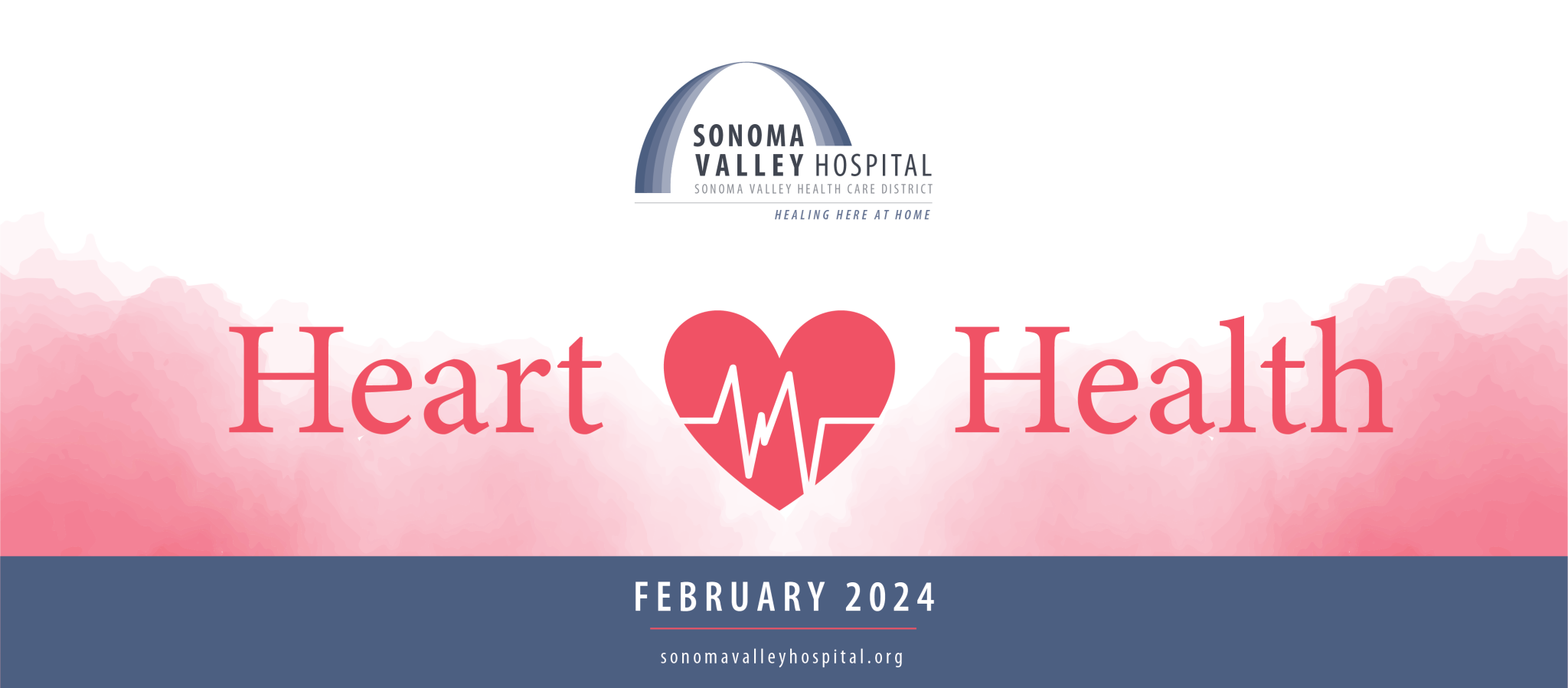
Focus on Heart Health This February
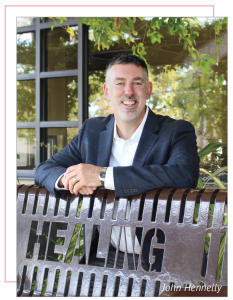 Dear Sonoma Valley Community,
Dear Sonoma Valley Community,
February is American Heart Month, a crucial time for all of us to focus on heart health. Heart disease remains the leading cause of death in the United States for both men and women, contributing to 1 in 4 deaths annually. This stark reality drives home the importance of preventative care and informed health choices.
At Sonoma Valley Hospital, we’re fully committed to fighting heart disease. We offer a wide variety of heart health services to meet your needs. This includes tests to check how well your lungs and heart are working, heart scans, stress tests, 24-hour heart monitoring, and more. Our goal is to keep your heart healthy and strong.
Our Cardiopulmonary Department operates Monday through Friday, from 7 a.m. to 4 p.m., and we ensure that a Respiratory Therapist is available 24/7, guaranteeing that you always have access to the care you need.
This month, we are placing a special emphasis on women’s heart health. The CDC is encouraging women to take an active role in their cardiovascular health, a critical reminder given that heart disease is a leading cause of death among women. Yet, nearly half of U.S. women are unaware of this fact, leading to delayed diagnosis and treatment. It’s time to change that narrative.
To further our commitment to heart health education, we delve into all things heart health, providing you with expert advice, tips, and the latest information to help you and your loved ones stay heart healthy.
I encourage each of you to take your heart health seriously this February. Schedule your check-ups, utilize our Cardiopulmonary Services, and make sure to read our newsletter for valuable insights.
Together, let’s make this Heart Month a steppingstone to a healthier future.

John Hennelly
CEO, Sonoma Valley Hospital
Understanding Heart Disease
Heart disease encompasses a range of conditions that impact the structure and functionality of the heart, and it remains the leading cause of death in our nation. Among these, coronary heart disease, which limits the heart’s ability to receive oxygen-rich blood due to narrowed arteries, is the most prevalent form, affecting approximately 20.5 million adults in the United States, as reported by the Centers for Disease Control and Prevention.
Types of Coronary Heart Disease
There are two primary forms of this condition. The first, coronary artery disease, involves the larger arteries on the heart’s surface. The second, known as coronary microvascular disease, affects the heart’s smaller blood vessels and is more commonly diagnosed in women.
Understanding the Causes
The root causes of coronary heart disease vary by type. Coronary artery disease often results from cholesterol buildup inside the arteries, leading to plaque formation and restricted blood flow. Conversely, coronary microvascular disease is attributed to damage to the small blood vessels’ inner walls. Fortunately, adopting a heart-healthy lifestyle and appropriate medication can prevent many cases of coronary heart disease.
Recognizing the Symptoms
Symptoms can differ widely among individuals and may be absent, leaving many unaware of their condition until experiencing chest pain, a heart attack, or cardiac arrest. This underscores the importance of proactive health monitoring and consultation with healthcare providers.
Management and Prevention
For those diagnosed with coronary heart disease, a combination of lifestyle modifications, medication, and possibly surgery is essential for managing the condition and preventing further complications.
Take Action for Your Heart
We urge everyone in our community to prioritize their heart health. Regular screenings, maintaining a healthy lifestyle, and seeking medical advice when needed are key steps toward preventing heart disease and ensuring a vibrant, healthy life. Together, we can tackle heart disease head-on, ensuring a healthier future for all our community members.
Services Available at Sonoma Valley Hospital
The Sonoma Valley Hospital Cardiopulmonary Department services include Complete Pulmonary Function Testing, Echocardiograms, Stress Echos, Bubble Study Echocardiograms, 24-hour Cardiac monitoring, Nuclear cardiac stress testing, Arterial Blood Gas testing, EKGs, Metered Dose Inhalation Instruction, dispensing of breathing treatment nebulizers, and Pulse Oximetry checks before and after exercise. To put it more simply, tests to check how well your lungs and heart are working, heart scans, stress tests, 24-hour heart monitoring, and more.
GUARD YOUR HEART – Prevention Tips For Tomorrow
Let’s talk prevention – with a list of strategies to protect your heart and enhance your overall well-being.
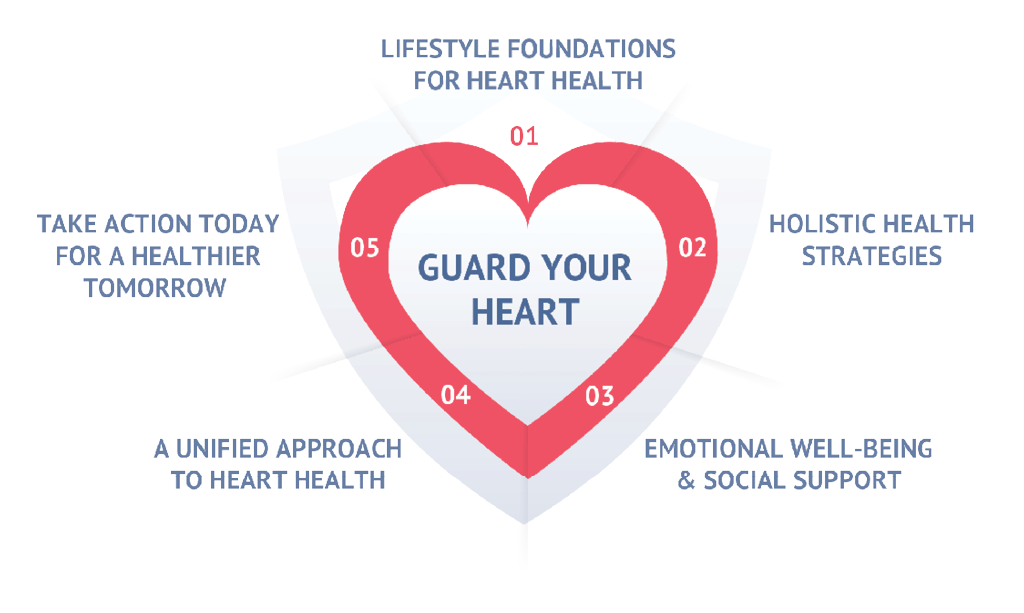 01 Lifestyle Foundations for Heart Health
01 Lifestyle Foundations for Heart Health
Restful Nights & Nutritious Bites: Quality sleep and proper nutrition form the bedrock of heart health. Aim for 7-9 hours of sleep nightly, establishing a regular routine to enhance sleep quality. Complement this with a balanced diet low in saturated fats, sodium, and added sugars. Incorporate a variety of lean meats, fish, plant-based meals, and smart snacking options like fruits, vegetables, and low-fat dairy to fortify your heart.
Active Living & Weight Balance: Physical activity and maintaining a healthy weight are pivotal. Engage in at least 150 minutes of moderate exercise weekly, blending cardiovascular activities with strength training for holistic health benefits. Choose nutritious snacks and stay hydrated to support a healthy weight, vital for reducing heart disease risk.
02 Holistic Health Strategies
Smoke-Free Living: Quitting smoking is a critical step toward a healthier heart. Set a quit date, create a plan, and seek support from healthcare providers and support groups to embark on a smoke-free journey.
Managing Health Metrics: Keep cholesterol, blood pressure, and blood sugar within healthy ranges. Limit alcohol intake, monitor your health metrics regularly, and adopt dietary and lifestyle habits that support optimal heart health. For those at risk of diabetes, prioritize whole foods and monitor carbohydrate intake to maintain stable blood sugar levels.
03 Emotional Well-Being & Social Support
Stress Management: Stress can adversely affect your heart. Employ relaxation techniques, meditation, and yoga to mitigate stress and cultivate mindfulness. Embracing these practices can lower stress levels and contribute to emotional balance.
Community & Care: Heart health thrives on social support and self-care. Engage in daily self-care routines and seek out positive social interactions. Joining support groups or exercise communities can provide motivation and reinforce your commitment to heart-healthy living.
04 A Unified Approach to Heart Health
Adopting a heart-healthy lifestyle is a journey of incremental steps toward a brighter, healthier future. We encourage you to start with one or two changes from this guide. Your heart will surely feel the difference.
05 Take Action Today for a Healthier Tomorrow
Choose your starting point and embark on the path to a healthier heart today. Remember, every small step is a leap forward in heart health.
Understanding Blood Pressure And How To Manage It
What You Need to Know About Blood Pressure
Blood pressure is all about how hard your blood pushes against the sides of your blood vessels. It’s shown by two numbers: one for when your heart is pumping (systolic) and one for when it’s resting (diastolic). Surprisingly, 1 in 2 Americans have high blood pressure, and many don’t even know it. High blood pressure means the blood is pushing too hard, which can be risky. Ideally, you want your numbers to be below 120/80 mmHg. If they’re 130/80 mmHg or more, it’s considered high.
Causes, Risks, Detection, and Lifestyle Management
Many things can cause high blood pressure, like your lifestyle, family history, or other health issues, and it often doesn’t show any signs. This is why checking your blood pressure often is important. To keep your blood pressure in check, focus on eating healthy, staying active, quitting smoking, and not drinking too much alcohol. Sometimes, though, you might need medicine to help.
Takeaway
Check your blood pressure regularly. If it’s high, lifestyle adjustments and possibly medication can manage it, reducing your risk of serious health issues.
For more information on Blood Pressure please visit The American Heart Association.
 Podcasts
Podcasts
“There’s a growing recognition that atrial fibrillation may be preventable and that lifestyle factors in particular may be important,” said Dr. Gregory Marcus, a cardiologist and electrophysiologist, UCSF Health. He joined “As Prescribed” with KCBS Radio’s Alice Wertz.
The Association of Black Cardiologists is sounding the alarm about maternal health during the Black History Month. For more, Dr. Michelle Albert, Professor of Medicine at UCSF and President of Black Cardiologists, discussed with KCBS Radio’s Kathy Novak on “As Prescribed.”
